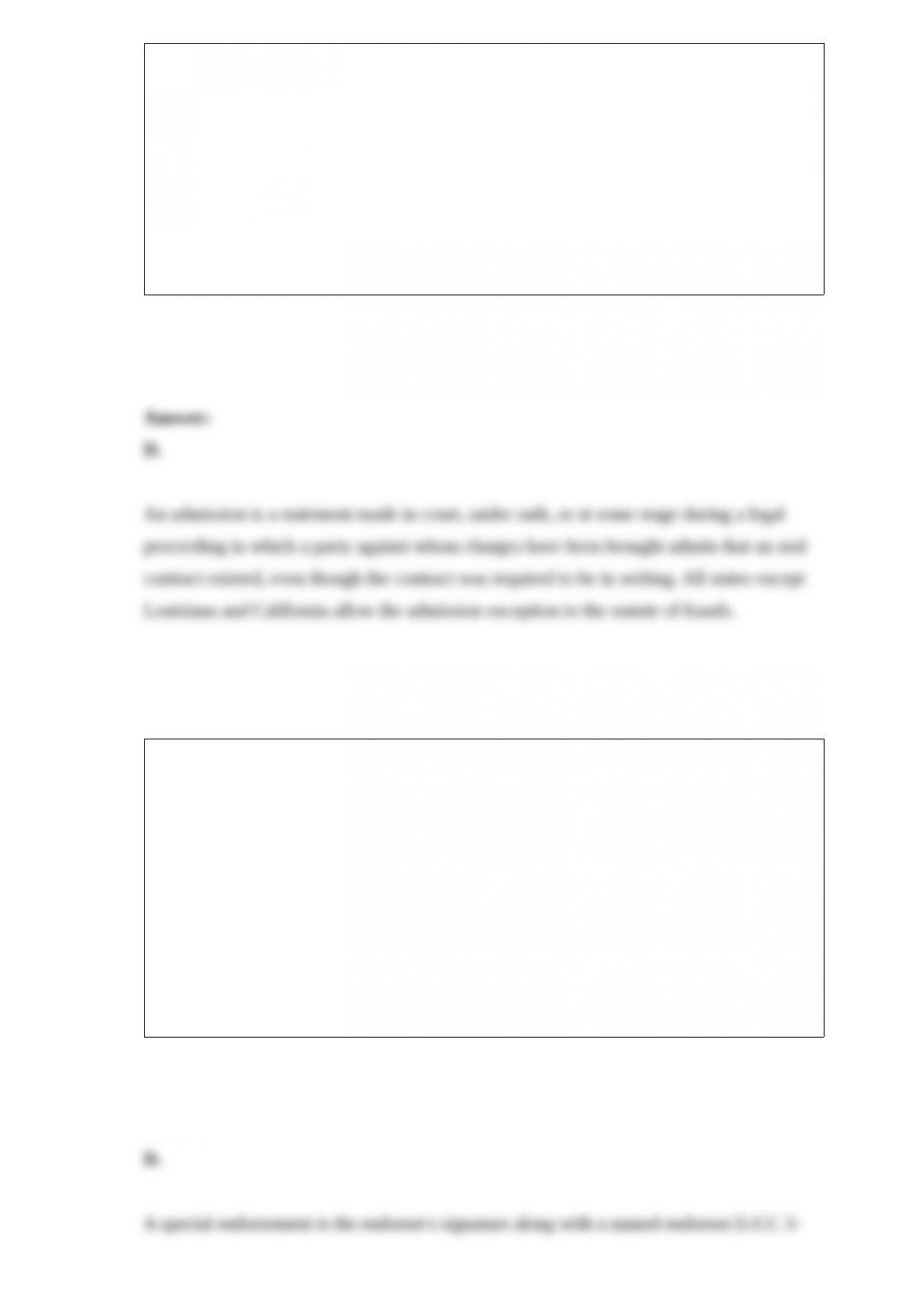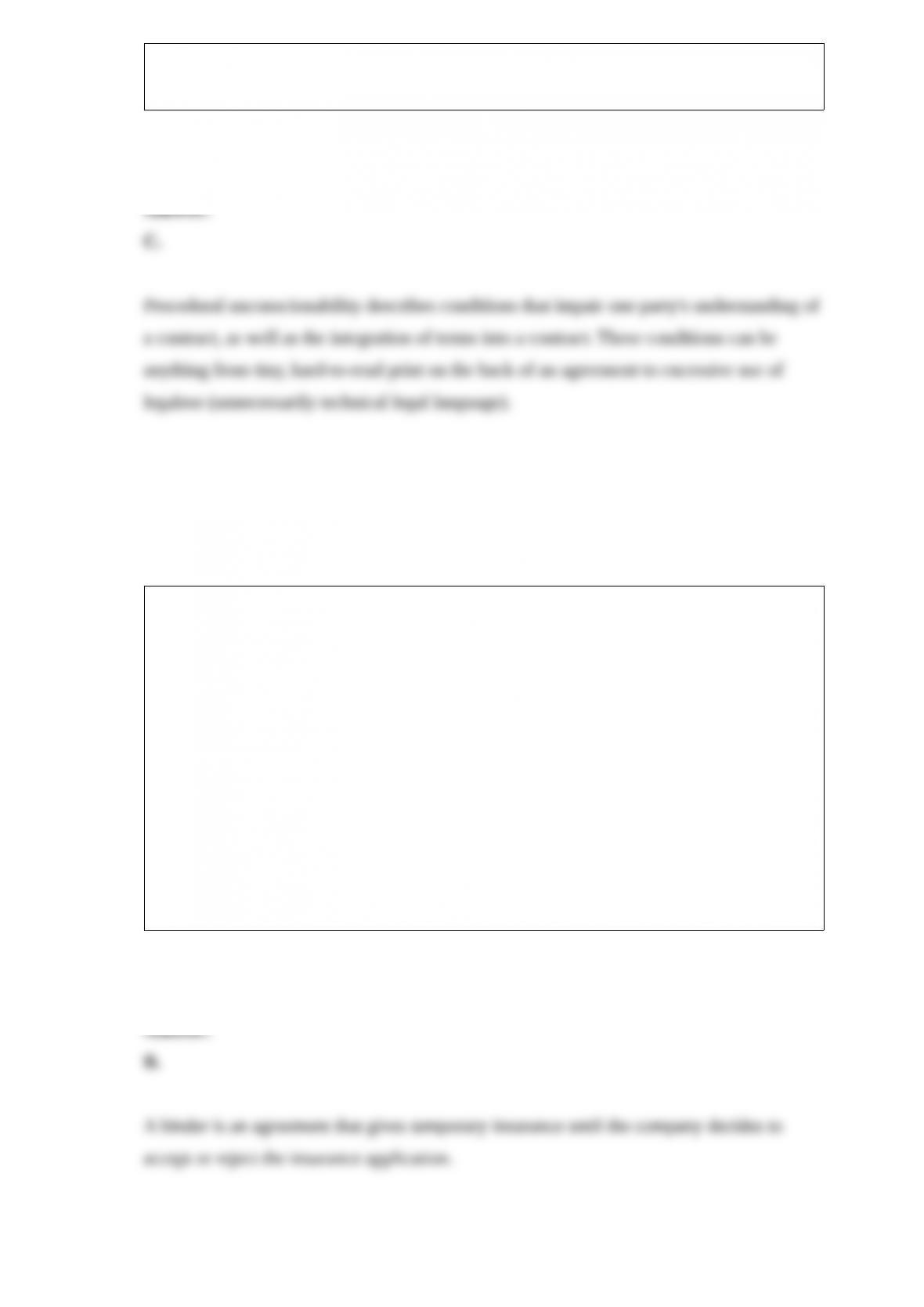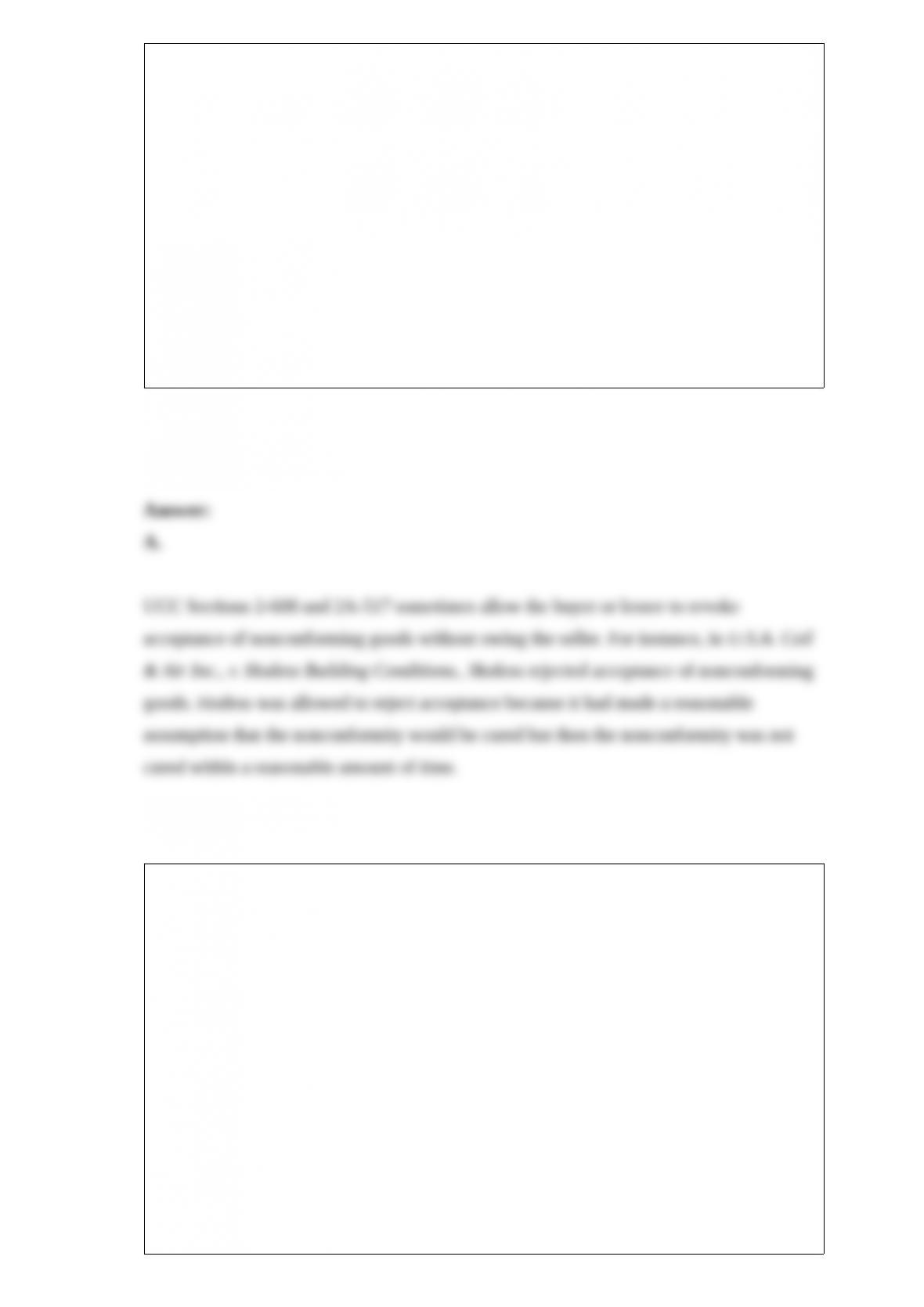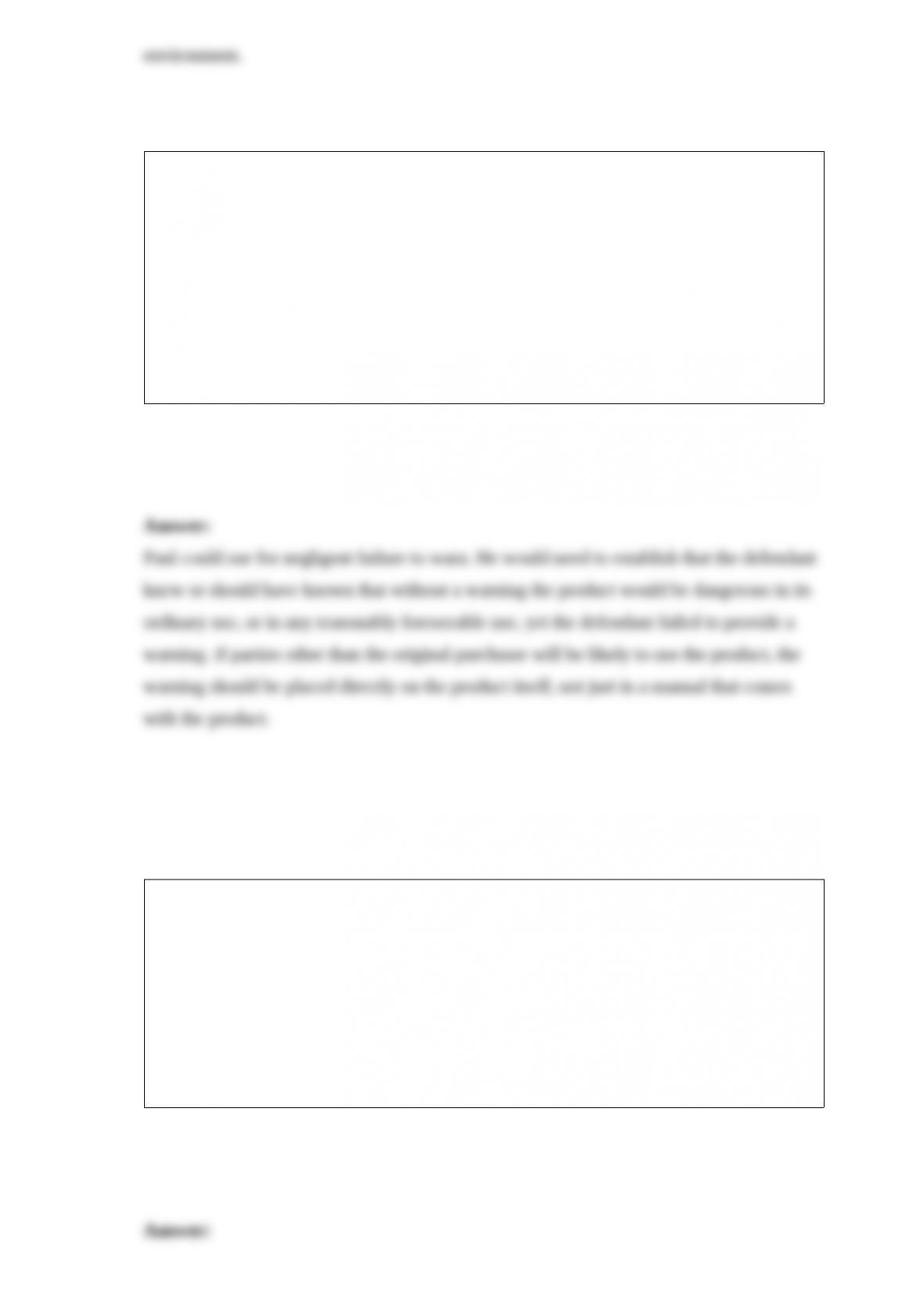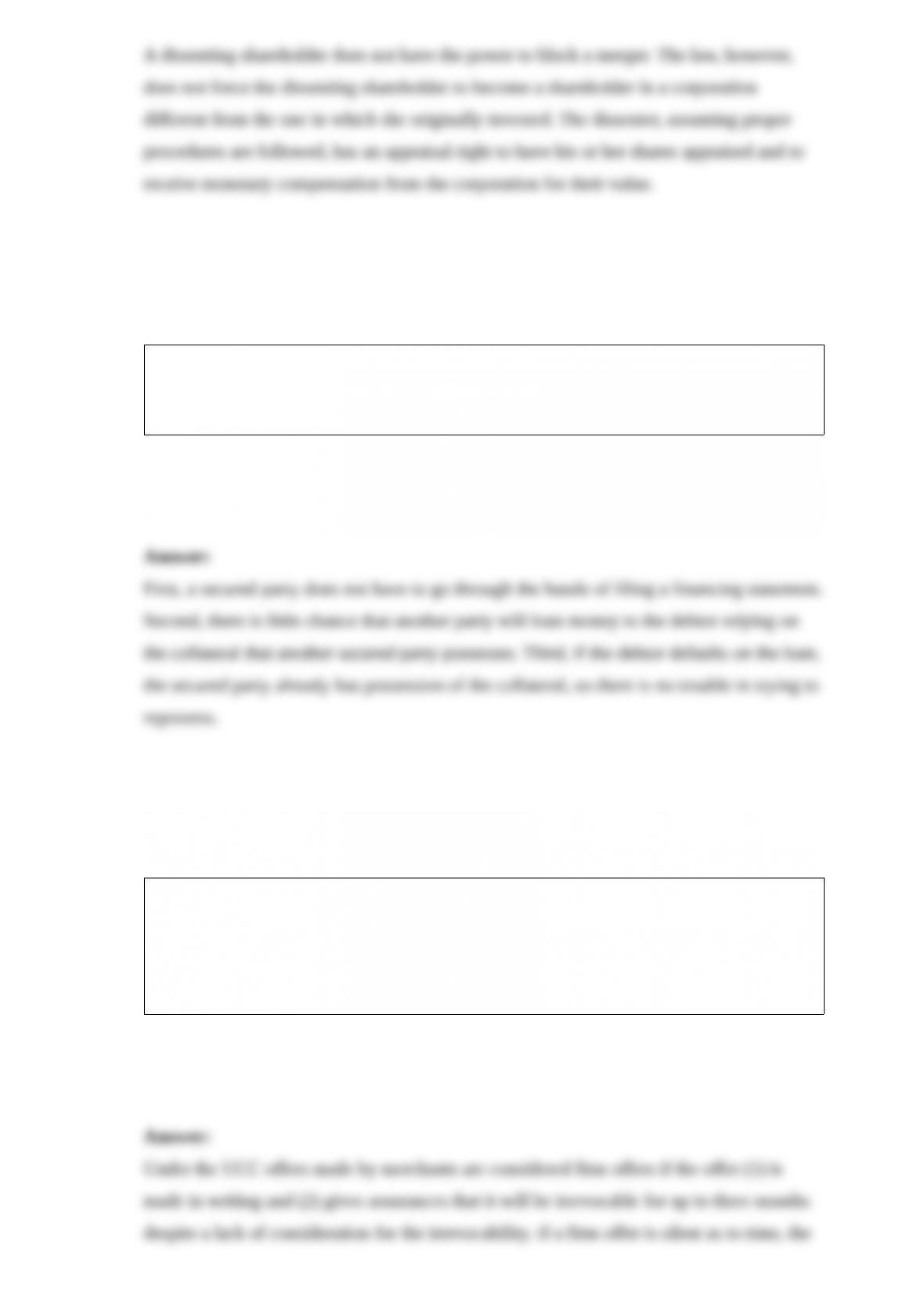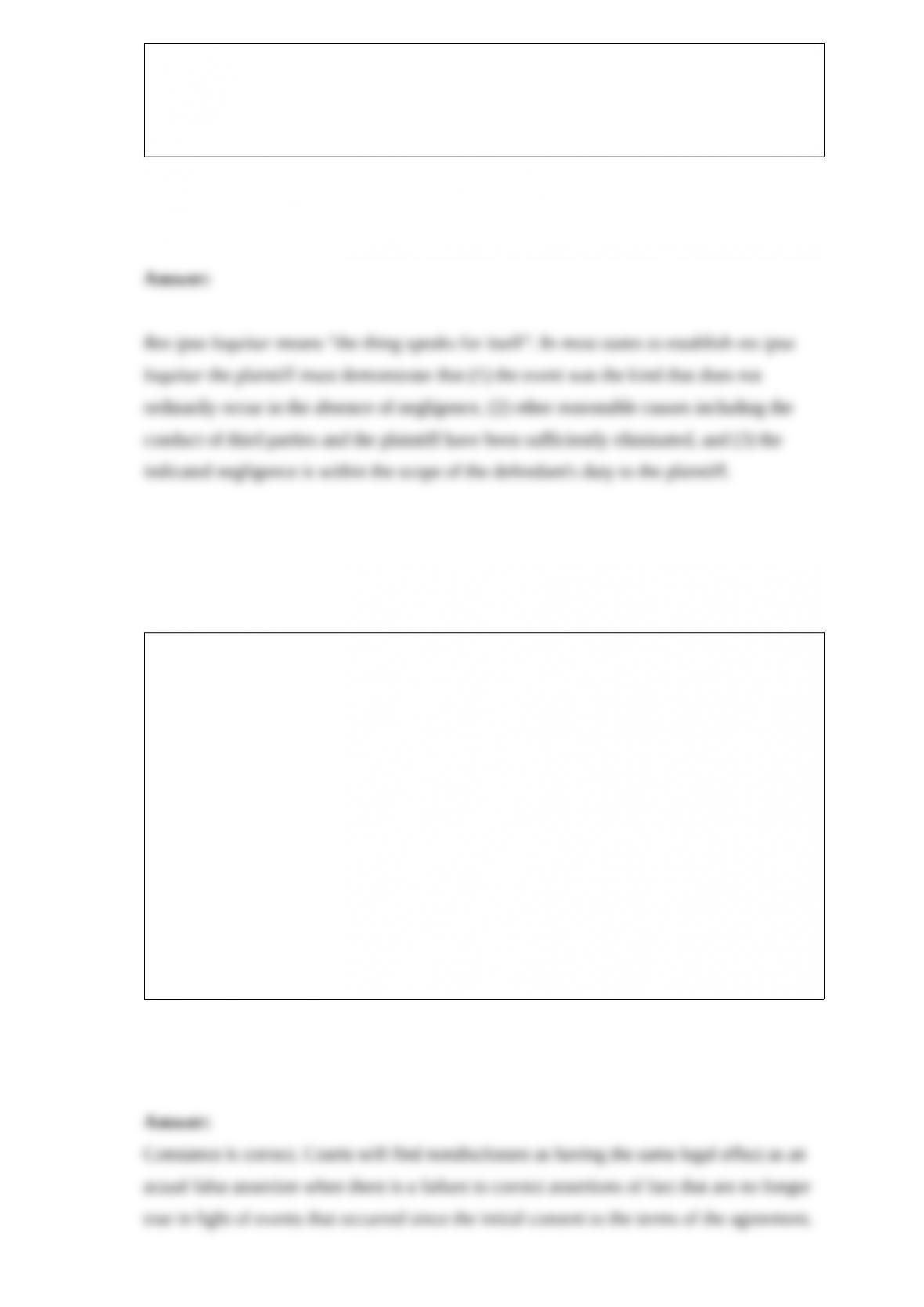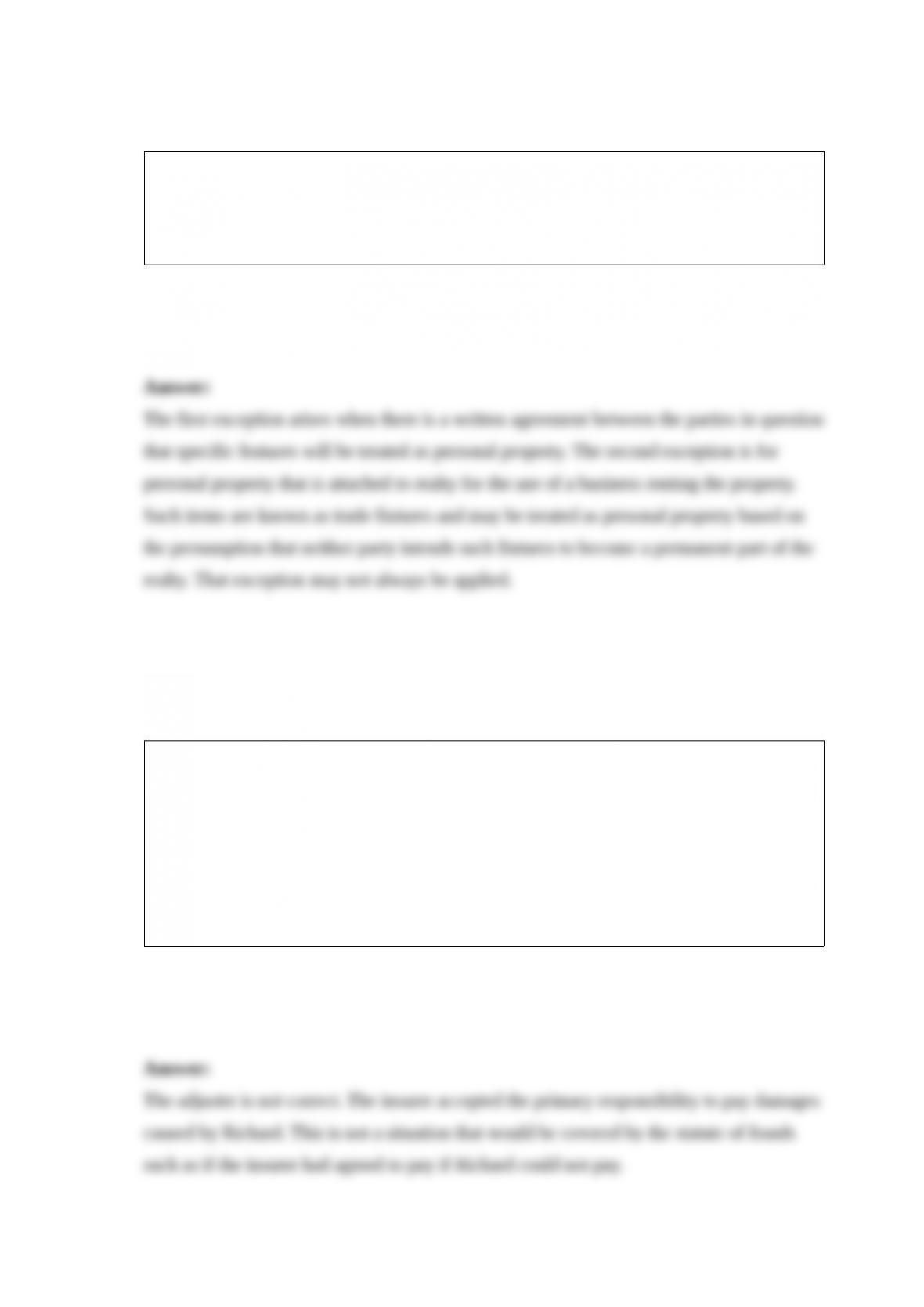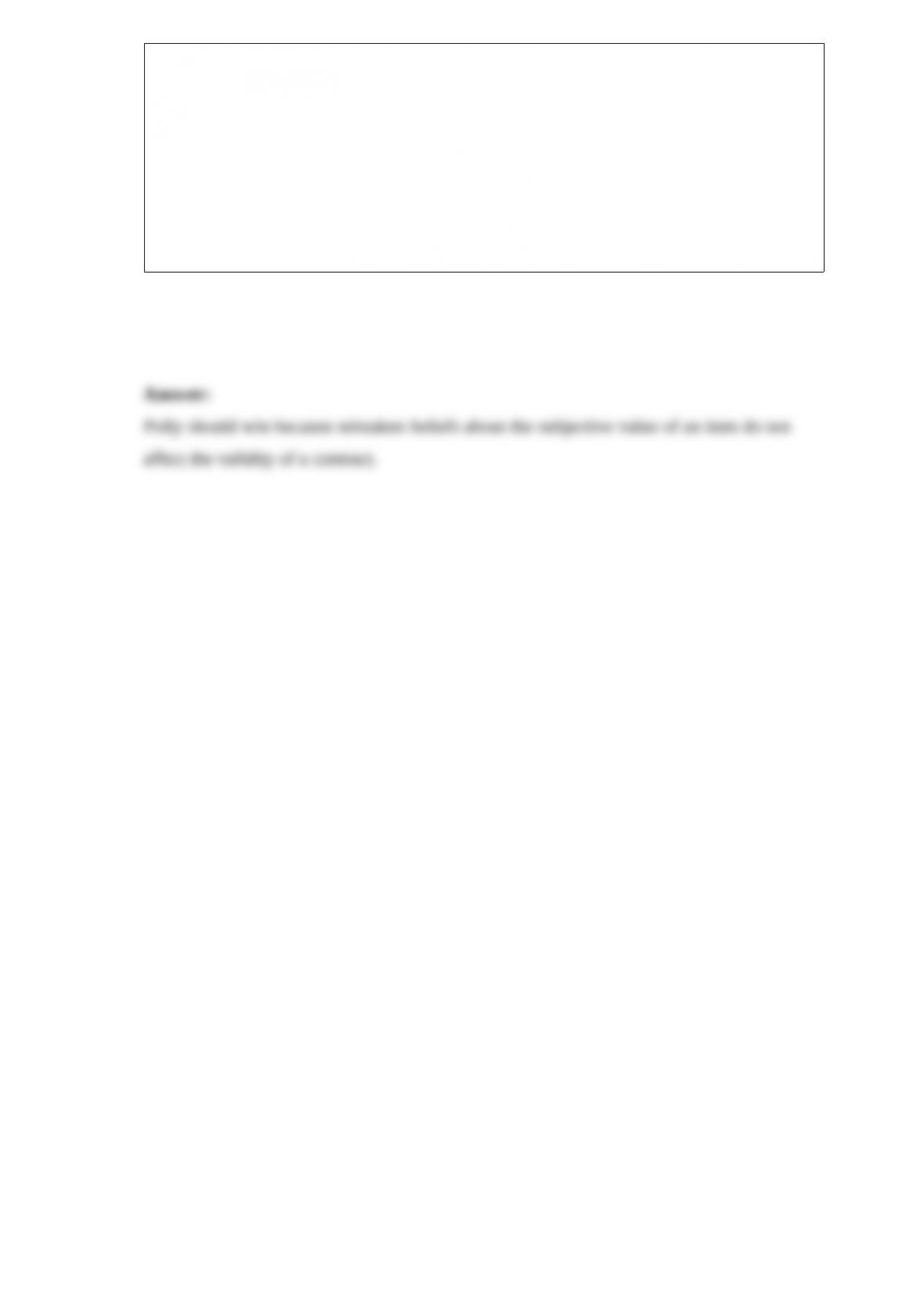"Check Cashing Business." Susan owns and operates a check cashing business. A
regular customer, Bob, comes in and cashes a $2,000 check issued by ABC Trucking.
The day after Susan cashed the check, she received a notice from ABC Trucking that
some checks had been stolen. It was later discovered that the checks she cashed for Bob
had been stolen. At the time she took the check, Susan was very busy with several
customers in line. She simply glanced at the check and cashed it. A reasonable
examination would have revealed that the check had been materially altered and
changed from the amount of $200 to $2,000. Susan decided that she needed to hire
some people to help her because she also had a problem with another check. On the
same day that she took Bob's check, she took a check from another customer, Maurice.
It was later discovered that the check, which was four months old, was the subject of a
dispute between Maurice and the issuer of the check for whom Maurice had done some
work. The issuer claimed that the work was improperly done. Both ABC Trucking and
the issuer of the check to Maurice had stopped payment on the checks. Susan claimed
that as a holder in due course, she was entitled to payment on both checks.
What is the effect on Susan's status as a holder in due course in taking the check from
the customer that was four months old?
A. There is no effect on her status as a holder in due course because an instrument such
as a check is only considered overdue if it is outstanding for 150 days.
B. There is no effect on her status as a holder in due course because an instrument is
only considered overdue if it is outstanding for 180 days.
C. There is no effect on her status as a holder in due course because an instrument is
only considered overdue if it is outstanding for one year.
D. It has no effect because a check is never considered overdue.
E. She would not be considered a holder in due course because a check is considered
overdue 90 days after its date.





























